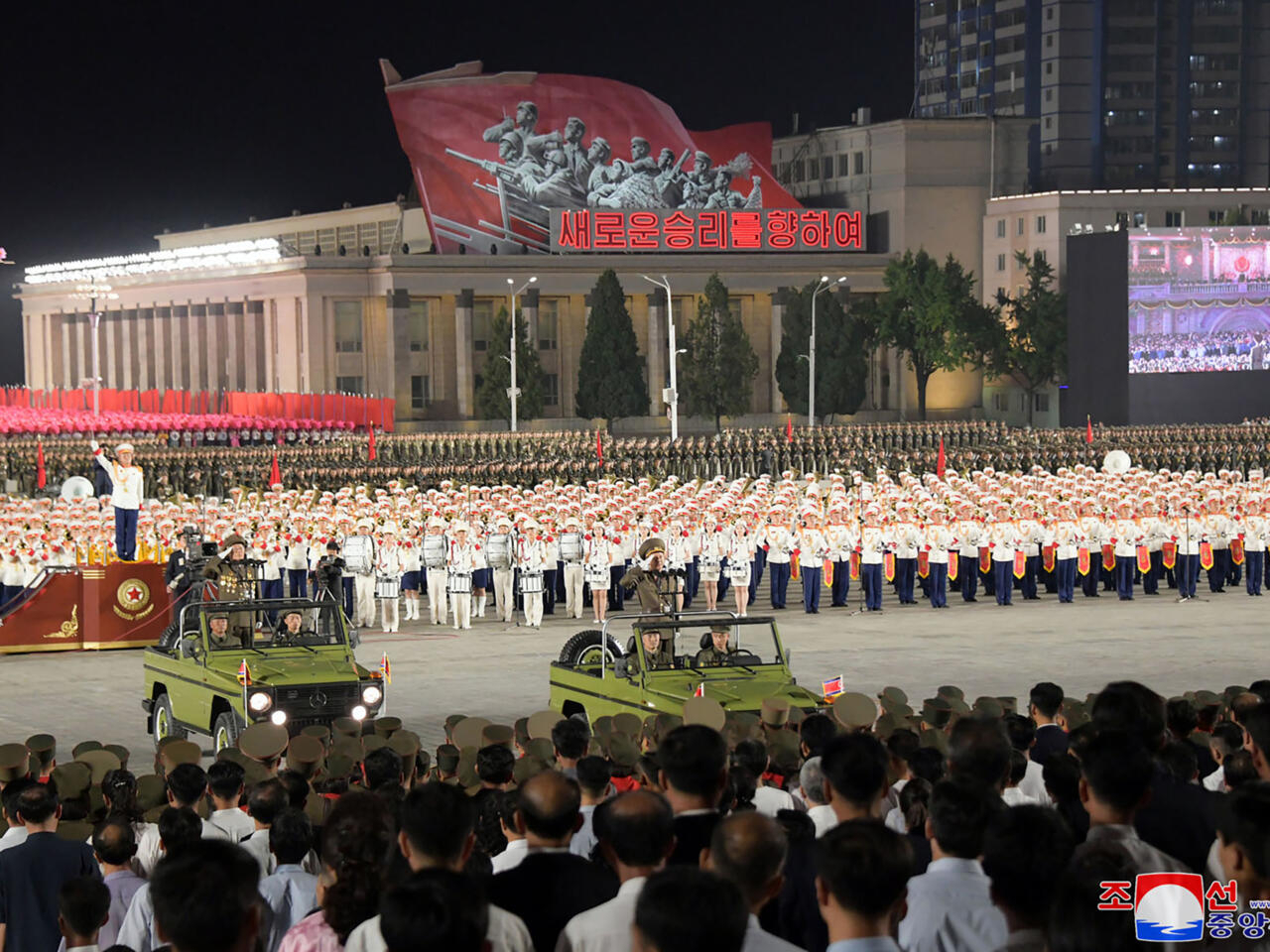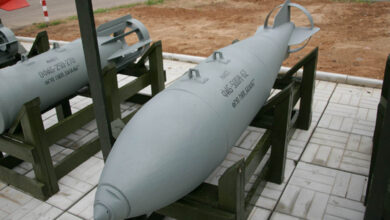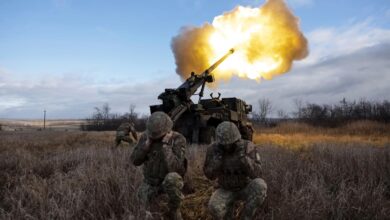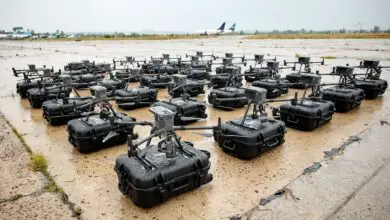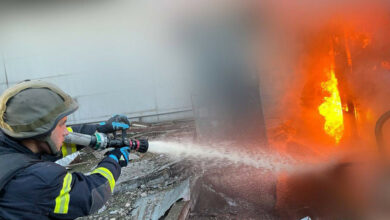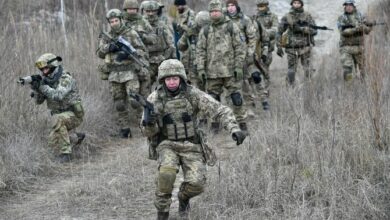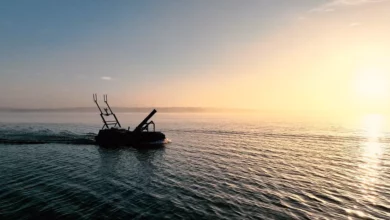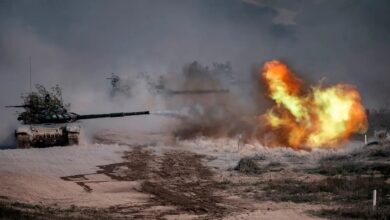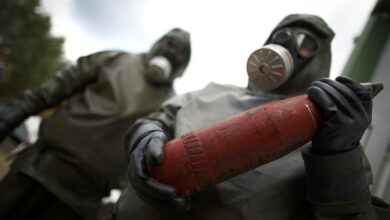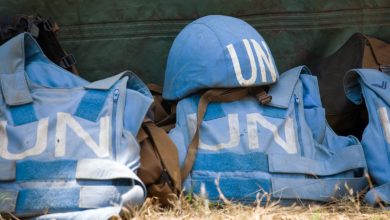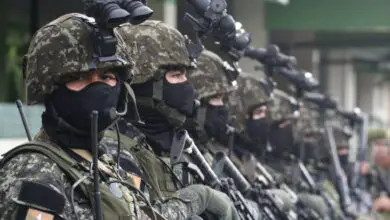Russians, Chinese Officials Attend N. Korea Anniversary Parade
North Korea marked its founding anniversary with a parade attended by leader Kim Jong Un as well as Russian diplomats and a high-ranking Chinese delegation, state media said Saturday, as Pyongyang deepens ties with Moscow and Beijing.
The Friday event featured Pyongyang’s “paramilitary forces,” state media said, rather than soldiers in the regular army, and it did not showcase the country’s banned weaponry including intercontinental ballistic missiles.
Images in state media showed uniformed paramilitary brigades, including some riding tractors or in large red trucks.
Kim, flanked by his young daughter, looked on smiling and clapping.
Kim Il Sung Square “was full of excitement and joy of the spectators significantly celebrating the birthday of their great powerful country,” the official Korean Central News Agency reported.
“All the participants paid the highest glory and warmest thanks to Kim Jong Un, peerless patriot and ever-victorious iron-willed commander.”
Kim met with the visiting Chinese delegation led by Liu Guozhong, vice-premier of the State Council, the second such visit by top officials from Beijing in six weeks, as Pyongyang shows signs of easing its strict Covid-era border controls.
The two sides announced their aims of “further intensifying the multi-faceted coordination and cooperation” between the two countries, according to a separate KCNA report.
Russian diplomats also attended the event, as well as a Russian military song-and-dance ensemble which had arrived in Pyongyang to mark the occasion, KCNA reported.
Moscow expanded its official presence in North Korea shortly before the parade, with its Pyongyang embassy saying this week that it had been allowed to bring in 20 diplomatic and technical staff — the first such rotation of personnel since 2019.
Russian President Vladimir Putin sent Kim a message marking the anniversary, KCNA said Saturday, in which he called for the two countries to “expand the bilateral ties in all respects.”
And according to Chinese state media, President Xi Jinping “extended congratulations in a call to Kim Jong Un” on the anniversary.
“For the North Koreans, it’s another confirmation that they can completely count on the Chinese support and a nice confirmation that, (since) the war in Ukraine, Russia basically has no choice but to be supportive of North Korea,” analyst Andrei Lankov said.
Kim Jong Un marks 75th anniversary of the founding of North Korea with a parade of paramilitary forces and promises to deepen ties with China and Russia https://t.co/hbEhz1ii9M pic.twitter.com/WYwPXI8lkc
— Al Jazeera English (@AJEnglish) September 9, 2023
‘New Cold War?’
Friday’s event was the nuclear-armed state‘s third parade this year.
The last one — a military parade featuring the country’s most advanced weaponry — took place in late July to commemorate the signing of an armistice that ended hostilities in the 1950-53 Korean War.
The Chinese and Russian visits come as speculation mounts that Kim — who rarely leaves his country and has not traveled since the coronavirus pandemic started — will meet Putin to discuss arms deals.
US and other officials told The New York Times that Kim is likely to head by armored train later this month to Vladivostok, on Russia’s Pacific coast not far from North Korea, to meet Putin.
Lankov told AFP that a Kim-Putin meeting is “likely to happen” as, for Moscow, “with a bit of diplomacy North Korea can be used as a tool to influence behaviour of the United States, South Korea” and other places over the Ukraine war.
Moscow’s moves to boost military ties with Pyongyang — including possible naval drills — are “gentle diplomatic blackmail” of Washington, he added.
Growing cooperation between China, Russia, and North Korea, coupled with Xi skipping the G20 Summit in India, “give the appearance of a widening fissure in Asia’s geopolitical landscape”, said Leif-Eric Easley, a professor at Ewha University in Seoul.
“Most stakeholders in the region want to avoid a new Cold War, but this looks increasingly difficult as Beijing and Moscow prop up Pyongyang and North Korea aligns itself with China and Russia’s challenges to the international order,” he said.
The parade came two days after Pyongyang unveiled its first “tactical nuclear attack submarine”, with Kim declaring it part of a “push forward with the nuclear weaponisation of the Navy,” although the South Korean military said the vessel might not be operational.

